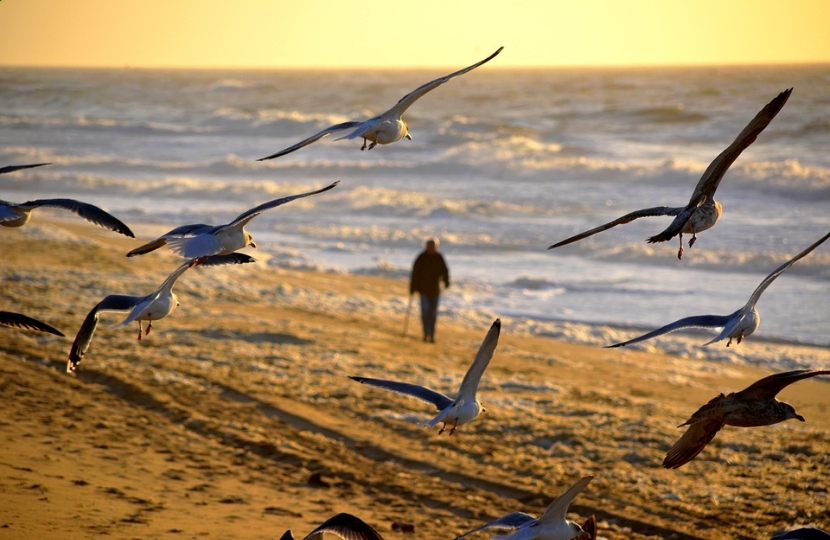
Environment Minister Rebecca Pow has today announced new ambitious plans to protect local rare seabirds in the Solent area.
Special protection areas (SPAs) will be created and extended to protect these birds from human activities such as fishing both within the Solent and near Middlesbrough. The Solent and Dorset Coast Special Protection Area (SPA) will span the equivalent of 17 000 football pitches, protecting 1000 pairs of three species of tern and more than 35 000 individual birds.
Local MP, Caroline Dinenage, commented:
“I am really pleased with today’s announcement which is a fantastic step to protecting our local sea life and birds.
“Climate change and human activity are a huge threat to our local wildlife and we need to ensure that our beautiful and rare birds have the necessary protection to thrive and be there for future generations to see. I know that many residents across the Gosport Constituency will be happy to hear that the Government is recognising the importance of our rare and vulnerable breeds.”
The new and extended protection zones announced today will join onto the already existing 47 sites in English waters. The SPAs are part of the UK’s ‘Blue Belt’ of Marine Protected Areas and 41 new Marine Conservation Zones that were announced in May 2019.
Environment Minister Rebecca Pow said:
“The UK continues to be a world leader in cutting carbon emissions and pushing for greater protections for marine life around our coast and in the global ocean.
“As the devastating impacts of climate change are only too visible, it is vital that we take decisive steps now that make a real difference to help protect our wildlife and allow vulnerable species to recover.
“We have already protected important nesting sites for seabirds, such as the little tern, and these new and additional protections to their feeding grounds, together with the development of a new strategy to protect our seabirds, will help the coastal environment recover, develop and, importantly, thrive.”
Tony Juniper, Natural England Chair, said:
“Many of Britain’s sea and shorebird populations are globally important and for that reason we have a particular responsibility to protect and enhance them. I am delighted that, following an extensive evidence-based assessment by Natural England, these new areas, confirmed today by Government, will help to do that. They will ensure that species of conservation concern, such as terns and waders, have access to secure food sources, including during their critical annual breeding seasons.
“When it comes to the bigger picture and longer term, all of us at Natural England look forward to working together with Defra and others across government to further develop and implement the landmark Seabird Conservation Strategy. This is a vital undertaking, through which we will be better placed to understand the challenges that seabird populations currently face and consider whether further measures are needed to help their recovery.”

